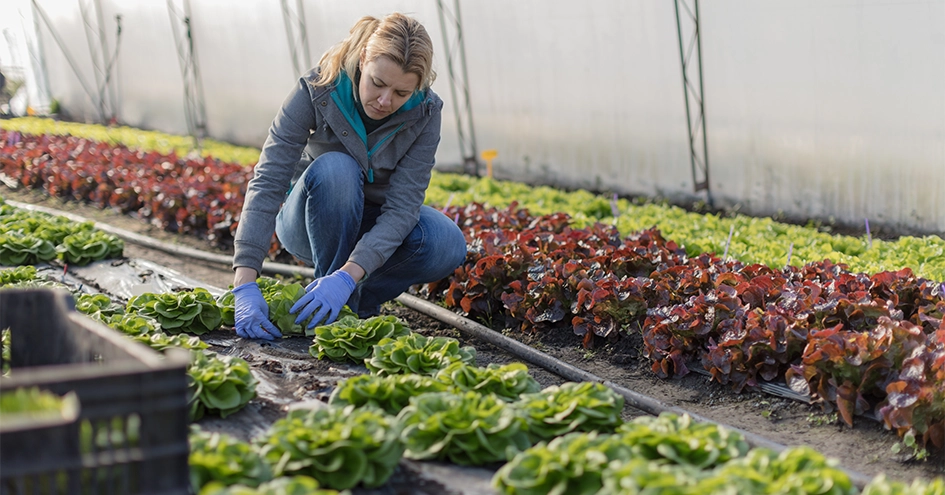Food safety and quality audits are carried out not only in our selection processes of new perishables and Private Brand suppliers1, but also in the monitoring of current suppliers in the development and production stages. These audits evaluate, among other things, hygiene and food safety conditions, traceability and labour-related aspects2. The frequency of audits is defined based on criteria that determine the supplier’s performance, taking into account:
- the level of perishability of the product and/or the history of risk assessments per supplier;
- the results of analytical checks, rejections and complaints;
- the results of previous audits;
- the existence of food safety certification systems, under the schemes approved by the Global Food Safety Initiative.

The outcome of this assessment determines that suppliers with a score of “Basic” are audited/visited at intervals of no more than 6 months. Those who scored “High” are audited/visited at least every 12 months, and for those that achieve a score of “Excellent” a longer monitoring window is allowed, which may be up to 36 months.
|
|
2024 |
|
2023 |
|
Δ 2024/2023 |
||||||
|---|---|---|---|---|---|---|---|---|---|---|---|---|
Colombia |
|
|
|
|
|
|
||||||
Perishables |
|
209 |
|
233 |
|
-10.3% |
||||||
Private Brand – food and non-food |
|
245 |
|
226 |
|
+8.4% |
||||||
Poland |
|
|
|
|
|
|
||||||
Perishables2 |
|
1,231 |
|
1,401 |
|
-12.1% |
||||||
Private Brand – food and non-food |
|
467 |
|
432 |
|
+8.1% |
||||||
Portugal |
|
|
|
|
|
|
||||||
Perishables |
|
924 |
|
1,008 |
|
-8.3% |
||||||
Private Brand – food and non-food |
|
188 |
|
250 |
|
-24.8% |
||||||
|
||||||||||||
In 2024, the total number of audits reduced by 8% compared to 2023. The decrease in audits in the perishables area in Poland and Colombia, and in the perishables and Private Brands categories in Portugal, is due to the previous good results obtained, which determined a lower frequency of follow-up audits in 2024. The increase in Private Brand audits in Colombia and Poland results from the higher number of potential suppliers which led to more selection audits being carried out.
These audits also include animal welfare criteria for the slaughterhouses (with which our Companies and respective suppliers work) of perishable meat suppliers who own primary farms. The assessed criteria are based on the Global G.A.P. (Global Good Agricultural Practices) framework and on laws in force. General aspects are adapted for different meat categories (with specific conditions for beef, poultry, pork, rabbit and lamb), such as conditions on the farm, feed, transport and stunning. In Poland, egg farms supplying Biedronka are inspected against an internally developed benchmark that assesses animal welfare aspects such as housing conditions, feed, freedom of movement and access to fresh water, among others.
Animal welfare audit performance excluding aquaculture (2023-2024)
In 2024, these audits were carried out in Colombia and Portugal (primary production and slaughterhouses), and Poland (primary production). A total of 78 audits were carried out, 20% less than in 20233. As already mentioned, this decrease relates to the good performance registered in previous years, which reduces the need for new follow-up audits.
In Poland, more than 200 inspections of egg farms have been carried out since 2018, achieving the target of auditing 100% of farms supplying Biedronka.
Performance of animal welfare audits of fresh aquaculture fish suppliers (2024)
Additionally, Biedronka initiated the audit of direct suppliers of fresh aquaculture fish according to the Group’s Fish Welfare standard, which is based on the aquaculture standard Global G.A.P. (Global Good Agricultural Practices) framework and on laws in force. In total, all evaluated suppliers scored “Very good performance”, representing 42% of Biedronka direct suppliers of this category. In Portugal, 100% of fresh aquaculture fish were evaluated for these topics as around 70% of fresh aquaculture fish suppliers are Global G.A.P. certified and the remaining 30% were included on the animal welfare audits coordinated by our Companies. Of these, only one was identified as needing relevant improvement. A correction plan was shared with this supplier and a follow-up audit will take place.
In 2024 we also worked with broiler chicken and turkey suppliers in Portugal to promote their certification in accordance with the Welfair™ standard. This certification is based on the European Welfare Quality and AWIN® standards and evaluates and monitors the quality of animal welfare on farms, in rearing areas and in slaughterhouses. As a result of the collaboration efforts, we ended the year with 100% of our suppliers of perishable and Private Brand broiler chicken and turkey with a third-party Welfair™ certification.
1 In the case of new suppliers with food safety certification systems approved by the Global Food Safety Initiative, a selection audit is not required unless the risk presented by a Private Brand supplier is above “Low”. The Global Food Safety Initiative is a coalition of The Consumer Goods Forum that assesses food safety management systems in supply chains with the aim of ensuring a reliable supply of safe food products to consumers. Several schemes are recognised by this initiative, including British Retail Consortium (BRC), Global Good Agricultural Practices (Global G.A.P.), HACCP/Codex Alimentarius, International Featured Standards (IFS), Food Safety System Certification (FSSC) 22000 and ISO 22000.
2 Labour-related aspects, which account for 10% of the assessment, are related to the quality and safety of products, and the audits assess elements such as health and safety working conditions, training, the use of appropriate clothing, hand washing equipment, rules of conduct and personal hygiene, the existence of adequate social areas, changing rooms, and employee bathrooms.
3 This variation was recalculated to include egg farm inspections carried out in both 2023 and 2024.
